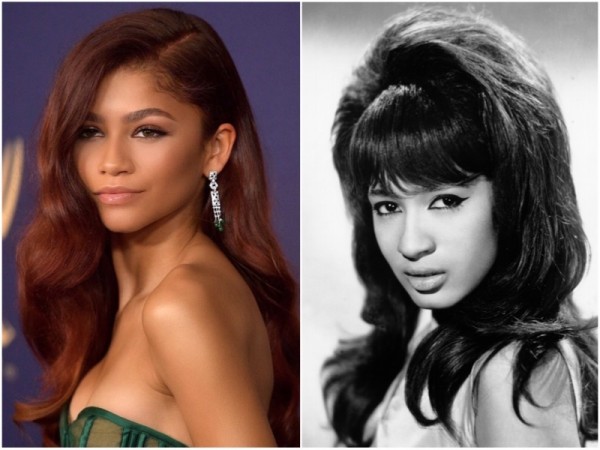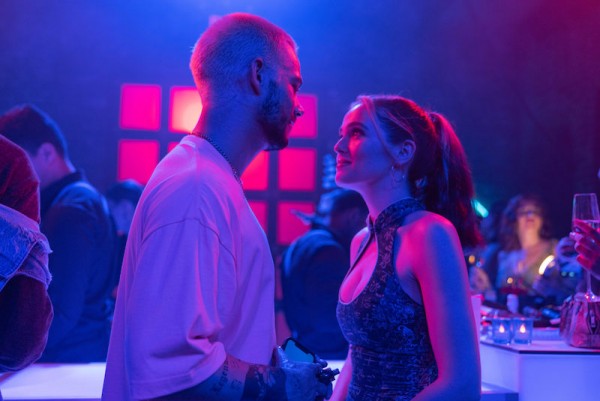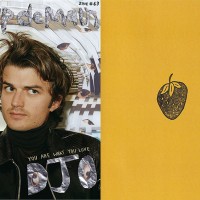Interview: Timothée Chalamet, Elle Fanning, Monica Barbaro & James Mangold on 'A Complete Unknown'.
Interview: Timothée Chalamet, Elle Fanning, Monica Barbaro & James Mangold on 'A Complete Unknown'.
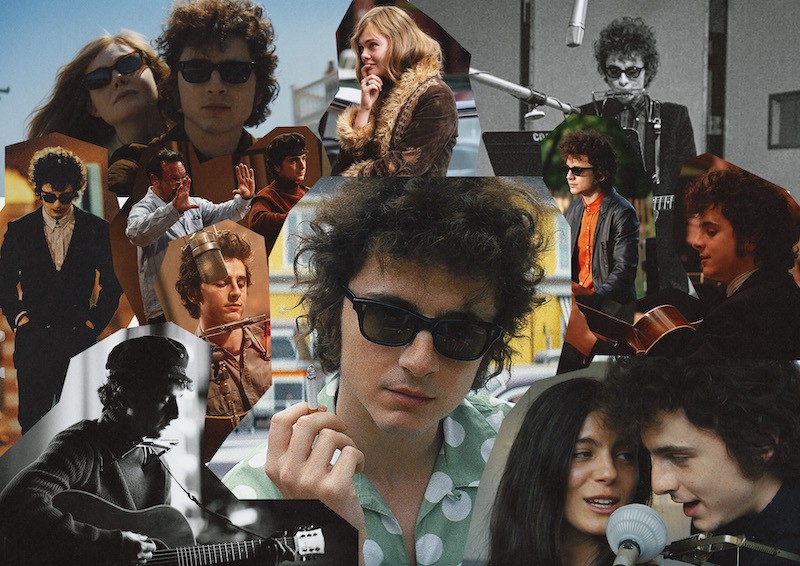
"Once I was in it, there was no coming back - I was fully in the Church of Bob," declares Timothée Chalamet of his critically acclaimed and much lauded starring role as Bob Dylan in James Mangold's 'A Complete Unknown'.
Chalamet further explains: "There are two versions of a Bob Dylan movie you could make. You’ve got a version that is a behavioural master class on a guy who didn’t really make eye contact that often and the mystery that surrounded him, or you do something that could be disingenuous to his life and work, a greatest-hits compilation that sort of ignores the fact that his career wasn’t a straight trajectory. Jim was quick to walk a fine line between demystifying Bob and not doing a sycophantic thing... We didn’t want to draw conjecture that would have demystified the way life was for Bob in Minnesota. That’s why I love the title of the movie, 'A Complete Unknown'. Some stuff is left to the imagination, because Bob’s ethos as an artist is the myth of self-creation."
Also featuring Elle Fanning as romantic interest Sylvie Russo, and Monica Barbaro as Joan Baez, Coup De Main spoke to the cast of 'A Complete Unknown' and director James Mangold ahead of the film's release...
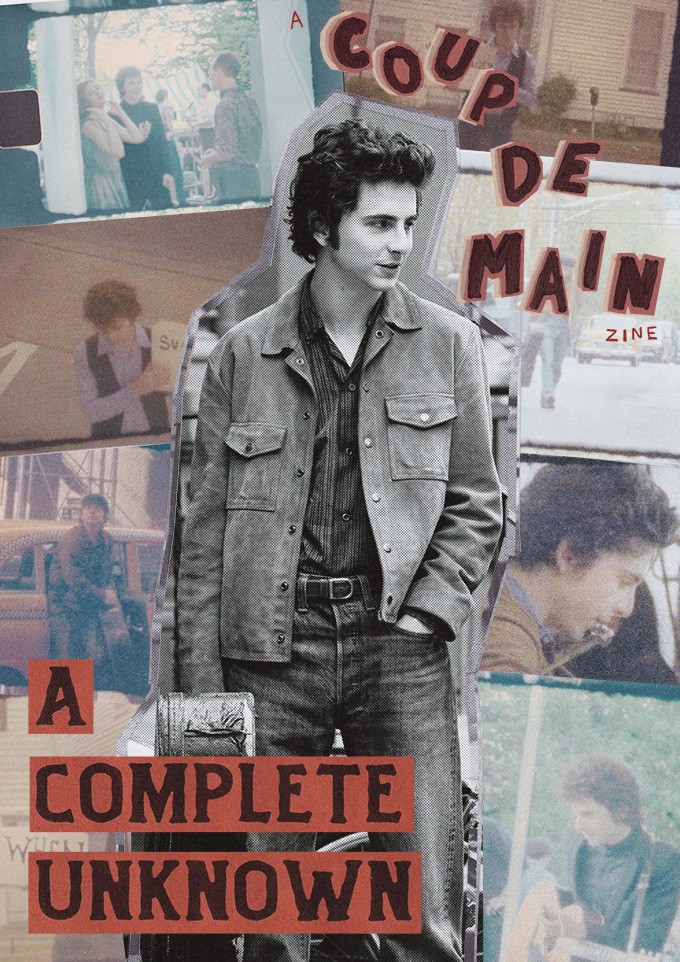 Click here to order our new limited-edition CDM x 'A Complete Unknown' zine (i.e. a mini-magazine that folds out into a poster).
Click here to order our new limited-edition CDM x 'A Complete Unknown' zine (i.e. a mini-magazine that folds out into a poster).
You've spent time lately portraying young men discovering the reality of what it means to come into fame or power. Is that a journey you can connect with and what fascinates you about unpacking it on screen?
TIMOTHÉE: I think the most fascinating thing about the world of 'Dune' and this period of Bob Dylan that we explore in this film from 1961-65, is that both were born of the open-mindedness of culture in America in the 1960s. 'Dune' was written in this middle 60s period and was written on the West Coast, but in a similar time in American history, where people were groundbreaking with their creativity and open-mindedness. And as far as relating to these roles, it's really not that fascinating to try to dissect or even to talk about, because the ways where parallels are apparent: I have no interesting perspective for anyone beyond the ways they're apparent to you, or to me, and the ways they're not apparent are also not apparent because I'm not a space prophet and I'm not a lyrical prophet. <laughs>
Do you have any desire to play Dylan again at a later age?
TIMOTHÉE: Oh, man, what a great question. The amazing thing about Bob Dylan is: every chapter is interesting. This is almost the most fertile because it's the beginning. Like I said before, this is the period of his life where the least is available, especially in the early 60s, but you can make a movie out of almost any period of Bob's life.
Do you think there's a series in this? Like, every 10 years you come back and there's a new era because it's an entirely different movie?
TIMOTHÉE: Yeah, that'd be an incredible opportunity.
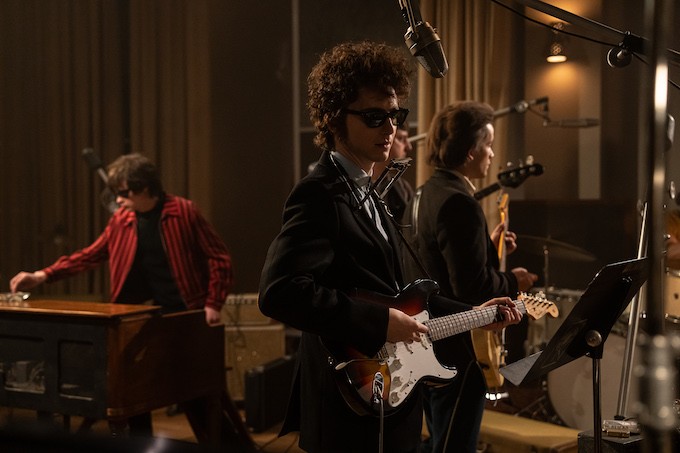
What did Bob Dylan's recent tweet ("Timmy’s a brilliant actor so I’m sure he’s going to be completely believable as me. Or a younger me. Or some other me...") about the film mean to you?
TIMOTHÉE: I didn't know if he was ever going to say anything, because true to the reclusive artist that Bob is, I don't know if he'll ever see the movie, truthfully. I've heard from people around that maybe he hasn't even seen 'No Direction Home', or 'I'm Not There', or 'Rolling Thunder Revue', so who knows if that's true, but seeing that post was hugely affirming. When you're a young artist - I don't care how successful you are - to get a pat on the back from a legend, especially a legend of few words like Bob Dylan, it was a dream come true. Literally, it was beyond my wildest dreams. It was an enormous pat on the back and affirmation and a moment for me in my life and career to go: 'Okay, I'm doing the right thing.'
Are you and Bob playing Coachella together next year?
TIMOTHÉE: Oh, wow. What a great question, man. What a fascinating thought. It's just fun to imagine the poster of that. Wow. What a great question. Murphy's Law, whatever can happen, will happen. There's some alternate universe where that's happening.
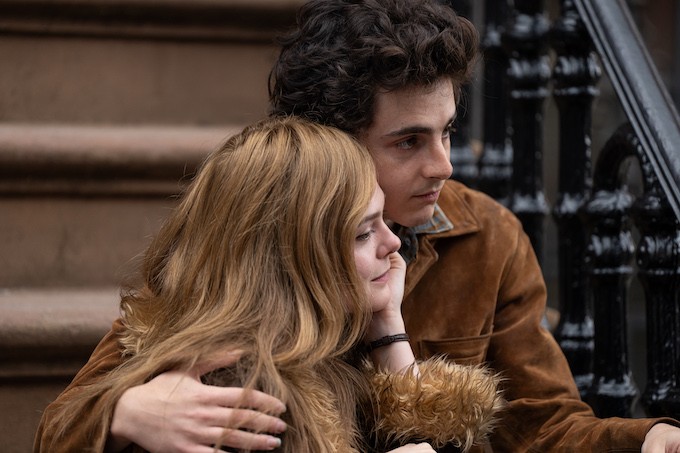
Sylvie believes that identity is tied to personal history, and laments that she feels like she doesn't know Bob because he hasn't shared any personal details of his history with her (aside from obvious fiction), whereas Bob believes that you can create your own identity. What does identity mean to you?
ELLE FANNING: So interesting! I know! Because Sylvie is really seeking the truth, and I think she's really after that. I don't know... I can go both ways with it because as an actor and growing up in this industry, I feel like, at times, I've probably created an identity for myself subconsciously. Sometimes you have something up, maybe just a protection to keep parts of yourself private and better for yourself, and I think that there's something to that that is needed, in a world where people know you. But in Bob, I find it funny, like in press conferences or interviews, when you watch him from that time, he really played with the press - he totally filled in the blank and just kind of messed with everyone, which I actually kind of find quite funny because people are already asking the questions - they're going to fill in the blank anyway, so why don't I just tell them something that maybe isn't true or not true, and then I'll be kind of this mystery, so I understand what he was trying to do. And I think as an artist, there's something about being free of the past and being free to be whoever you want to be, as cliché as it sounds, it is important, and I think what the film and Jim have done so beautifully is about an artist completely. He turns his back on what he knew to go into the future and step outside of the box and kind of be free again. And everyone was telling him not to do that, but thank God he did, because he really changed the course of music forever. So, I think it's important that we allow people to change. That's kind of what I take away. Identity: that's a big one because who are we really? Is it the people around us that tell us who we are? Is it us who tells us who we are? Jim kind of talks about it like the movie 'Amadeus', which I think is so true, Mozart and Bob Dylan are very similar, but it's about how Bob touched all the other characters, and so they are creating his identity and he's trying to get out of that. I don't know if that answers at all, but it's an ongoing question, yeah.
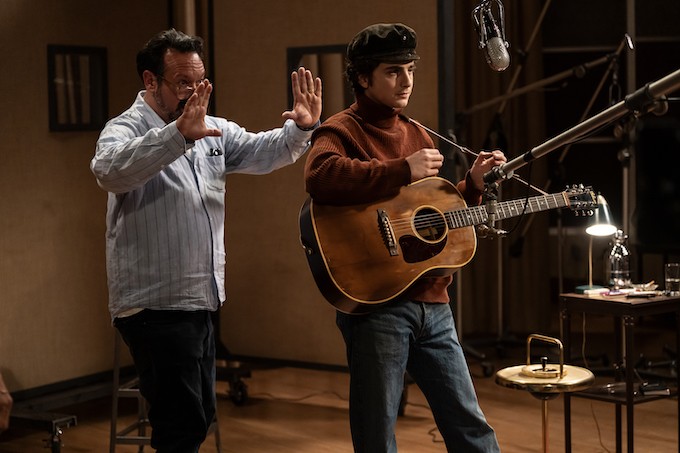
Timothée has said that Bob Dylan annotated a script of the film for you. Are there any specific notes Bob gave you that you can share?
JAMES MANGOLD: No! <laughs> I mean, one of them was that he hoped that Suze [Rotolo]'s character could be called Sylvie, because he felt that that Suze was not a public person and deserved to remain not exposed in the same way that other people who had volunteered for celebrity might be. I also think she was very dear to him, and had passed on, but was someone from the very beginning who loved him and supported him before he had become a star or even a known artist. He illuminated me about things. First of all, on the annotated written script, he crossed out lyrics that he never sang, he added a line to one scene that I put in the movie. I felt him getting into it, instead of existing in a suspicious or kind of nervous... he was actually excited by the creative prospect of the script that Jay and I had written and just kind of added expertise to it. Like, who called him Bob, who called him Bobby, and when it changed. But what he really informed me about was stuff that wouldn't be on the annotated script, but was just emotional wisdom: for instance, that he had always wanted to be in a band and that this wasn't some change he envisioned for historical purposes, knowing it would cause a titanic shift in the plates of music and culture. He made the shift mainly because he felt lonely and frustrated and that he'd run his course as a folk singer alone on the stage, and that he really longed to have the camaraderie and companionship that he saw in other bands, where they could all take the stage together and had each other to support each other. He basically just indicated what a lonely life it is being a solo singer-songwriter in which you are the entirety of your act and there is no company and there is no one on that stage with you in any form.

What's your favourite Joan Baez song?
MONICA BARBARO: Oh man, I can't possibly answer that question. Some of my favourites, I then had to sing for this movie, and so now when I hear them, I'm still hearing myself try to... I think in like five years, I can sort of come at it from a different perspective again, a little bit more removed, because I still hear my brain just automatically going into like, 'Oh, she holds that note there.' And I just can't help it because I studied it so intensely. But I will say, songs that I really loved that were really informative that I don't sing in this movie are 'The Water Is Wide' - talk about angelic, she sings it so beautifully, and for me, it was a great entry point into that sound that she had where you could hear a pin drop in a coffee shop because it's heavenly. And that helped me train the vibrato as well and train higher keys, and was something that I really liked singing, because it wasn't something that was in the film, so I could enjoy it, even when I sort of exhausted the other songs. And then her song 'Diamonds and Rust' was so informative for so much of this film, and her perspective of Bob and their relationship. That's her poetry about the relationship. And so that, to me, was a constant sort of anchor for me within this.
In both 'Top Gun: Maverick' and 'A Complete Unknown', you play women who work in male-dominated industries, and Joan herself has spoken about how when she dressed up as Bob Dylan on-tour as a joke, she was treated differently by everyone backstage. Is there something that draws you to these roles? Or that speaks to your own experiences?
MONICA: I've worked on a lot of male-dominant sets. There is something interesting about that. I do remember that in 'Top Gun', we were sort of treated one way, and then we put on a uniform and there'd be a ranking on our shoulder, and we were suddenly treated completely differently. People clock the ranking and then treat you differently, which is the construct of that. I hadn't heard her say that. I would love to tackle The Rolling Thunder Tour. That was such a wild time. And she finally danced. And she really exploded as a creative artist on that tour. At the time that we tell the story of in the film, it didn't seem as though she had discomfort with any circumstances of her gender as a performer. She became good friends with Odetta - she found a sort of partner in crime. But yeah, that wasn't necessarily something I thought a lot about in this process. I think a lot of women who are in male dominant spaces, often prioritise the work and prioritise the difference they want to make in that work, and I think that's what makes their work so great. Of course, you can't ignore your gender, but at the same time, I think it's not a prioritised thought, and I think that's a part of what makes them really special.
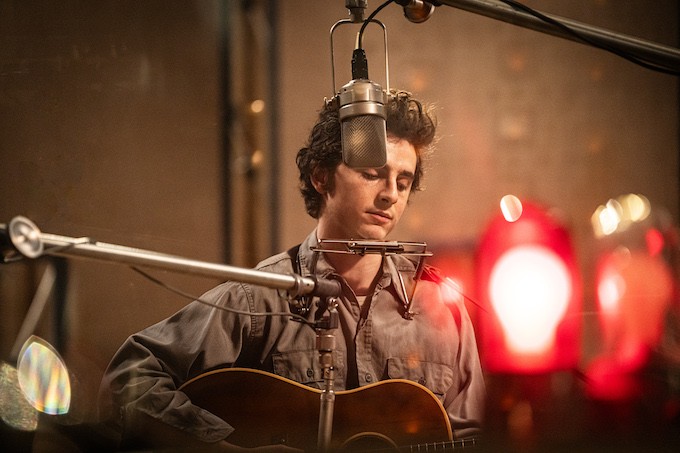
'A Complete Unknown' is playing now in New Zealand cinemas.
Watch a trailer below...



